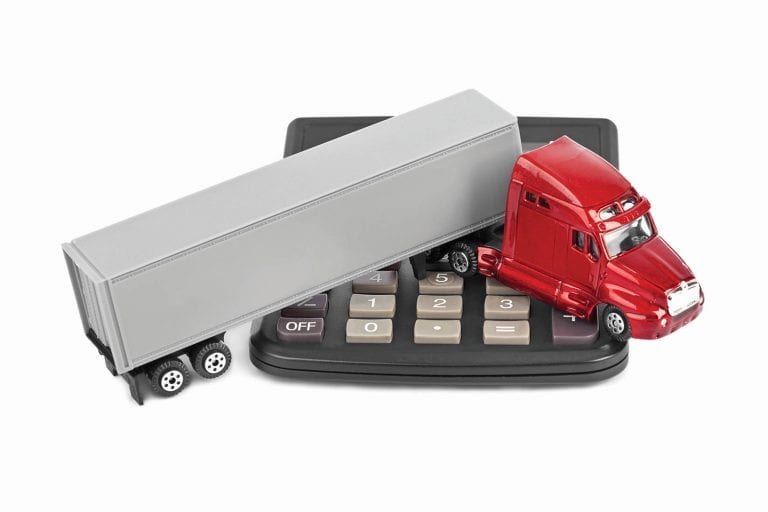To no one’s surprise, in mid-April Rep. Jesus “Chuy” Garcia (D-IL-4) reintroduced his Improving National Safety by Updating the Required Amount of Insurance Needed by Commercial Motor Vehicles per Event (INSURANCE) Act. Simply known as, the “Insurance Act,” this piece of legislation would increase minimum liability insurance coverage mandates for motor carriers.
The bill is designed to bring coverage minimums in line with what Garcia and eight co-sponsors claim are current medical costs. The current $750,000 financial responsibility requirement, implemented in 1980, would need to rise to nearly $4.9 million to keep pace with medical cost increases since that time, sponsors say. Periodic adjustment of the minimum would be required.
Garcia introduced the bill in 2019 and again in 2020 but was unsuccessful in getting it passed. This year, with Democrats having control of both Congress and the White House, backers are confident of approval.
Many carriers already have coverage higher than the legal minimum to comply with customer requirements or Federal Motor Carrier Safety Administration regulations for hazardous materials or other hauling.
Whatever the bill’s outcome, the process of searching for the best coverage at the lowest possible price will continue for carriers. That’s a task that carriers can help themselves with, said HNI Risk Advisors CEO/CRO Mike Natalizio, who advises clients to avoid the “insurance dependency trap.”
Natalizio noted that waiting until renewal time to start shopping is the wrong approach.
“That’s reactive. We want to be managing our risk throughout the course of the whole year,” said Natalizio, adding that it’s important to be able to explain what you’re doing to manage risk. “You can go shopping,” he said, “but right now it’s a hard market. They’re looking only at the carriers that tickle their fancy, have a good story.”
A part of that story, he explained, is “a high degree of intimacy with your numbers. You would be surprised at how many people go into insurance negotiations and we ask, ‘How many claims a year are you averaging?’ and the response is, ‘Ah, not many, but we’re doing better.’” It’s important, he said, to have a narrative that indicates that risk is being managed, and that starts with knowing the numbers.
Once you tell your story, Marvin Johnson & Associates’ Executive Vice President Tony Johnson said it’s about options. “I like to have somebody that says ‘Hey I’ve got three options for you,’” he said. “Here’s your standard auto liability. Here’s your auto liability with a deductible and here’s a self-insured retention. How do you want to do this?”
Johnson noted that the market has changed from the days where simply obtaining coverage was the goal. “It is more about what can you do for me, and what type of benefits do I get from the agency or the insurance company? What else do you offer besides a certificate of insurance?”
The standard practice is to obtain multiple quotes for the needed coverage. But Natalizio says it might be a bad idea to get quotes from multiple brokers. “First, decide which broker,” he said. “Identify an insurance broker that is aligned with your safety philosophy, that is aligned with being transparent, that is aligned with knowing the industry, that is proactive in bringing alternatives like higher deductibles. Once you select that broker, work with one broker to approach all of the markets to create a competition.”
Dealing with a single broker, or “risk advisor” as Natalizio calls them, removes the issue of dealing with multiple personalities with different goals and selling styles.
“That advisor is now helping you assess the pros and cons of each proposal,” he added. “They don’t have a vested interest in selling one over the other, because they’re all on the table.”
NSM Insurance Group’s Director of Transportation Risk James Birkhead sees the value of an agent. “The more an agent has worked with your company, the better they can tell your story,” he said. “If you’ve had a couple of bad claim experiences, an agent can help mitigate some of the factors. They can explain what happened, how you addressed any issues, your safety program, and so on.”
Once policy proposals are received, they should be thoroughly read and fully understood. “The basic policy is pretty similar from just about any (insurance) carrier, but added coverage features and endorsements can make a huge difference in the coverage offered,” explained Birkhead. “Look for exclusions and look for clarity. Make sure what’s covered and when are clearly defined.”
“I would ask, ‘Does it include pollution?’” said Johnson. “Are there deductibles that are applied? I mean those are two really low-hanging fruit questions you’re going to ask right out of the gate.”
Johnson explained that pollution coverage can differ greatly between carriers. Some, for example, cover fuel spills only if they result from a collision with another vehicle but not from, for example, a broken fuel line. Some don’t cover cargo spills or only cover specific types of cargos.
Natalizio mentioned pollution coverage but alluded to a higher priority. “I would say No. 1 would be brokerage exclusion,” he said. “Many of the auto liability underwriters will exclude coverage for brokerage.”
But there’s more to consider, according to Natalizio. For liability, carriers should be cognizant of “the BEST rating of the insurance company.” This rating, from A.M. Best company, gives insurance carriers a letter grade based on their financial stability, an indicator of their ability to absorb claims payouts without going bankrupt. “Some shippers require a rating of A++, so if you choose an insurer with a B rating it can really limit your ability to create revenue as a trucking company,” he explained.
Similar ratings are provided by Fitch and Standard and Poor rating companies.
All this advice is fine, but what about that insurance company advertisement that promised huge savings?
“If that’s the route you want to go, you’re going to be one out of a million,” said Johnson. “If you want to have a true ally in your insurance package, an agent that you can reach out to and see things the same would be the way you want to go.”
Preparedness, attention to details and the help of a trusted advisor can take some of the hassle out of finding the right liability policy.
Cliff Abbott is an experienced commercial vehicle driver and owner-operator who still holds a CDL in his home state of Alabama. In nearly 40 years in trucking, he’s been an instructor and trainer and has managed safety and recruiting operations for several carriers. Having never lost his love of the road, Cliff has written a book and hundreds of songs and has been writing for The Trucker for more than a decade.








